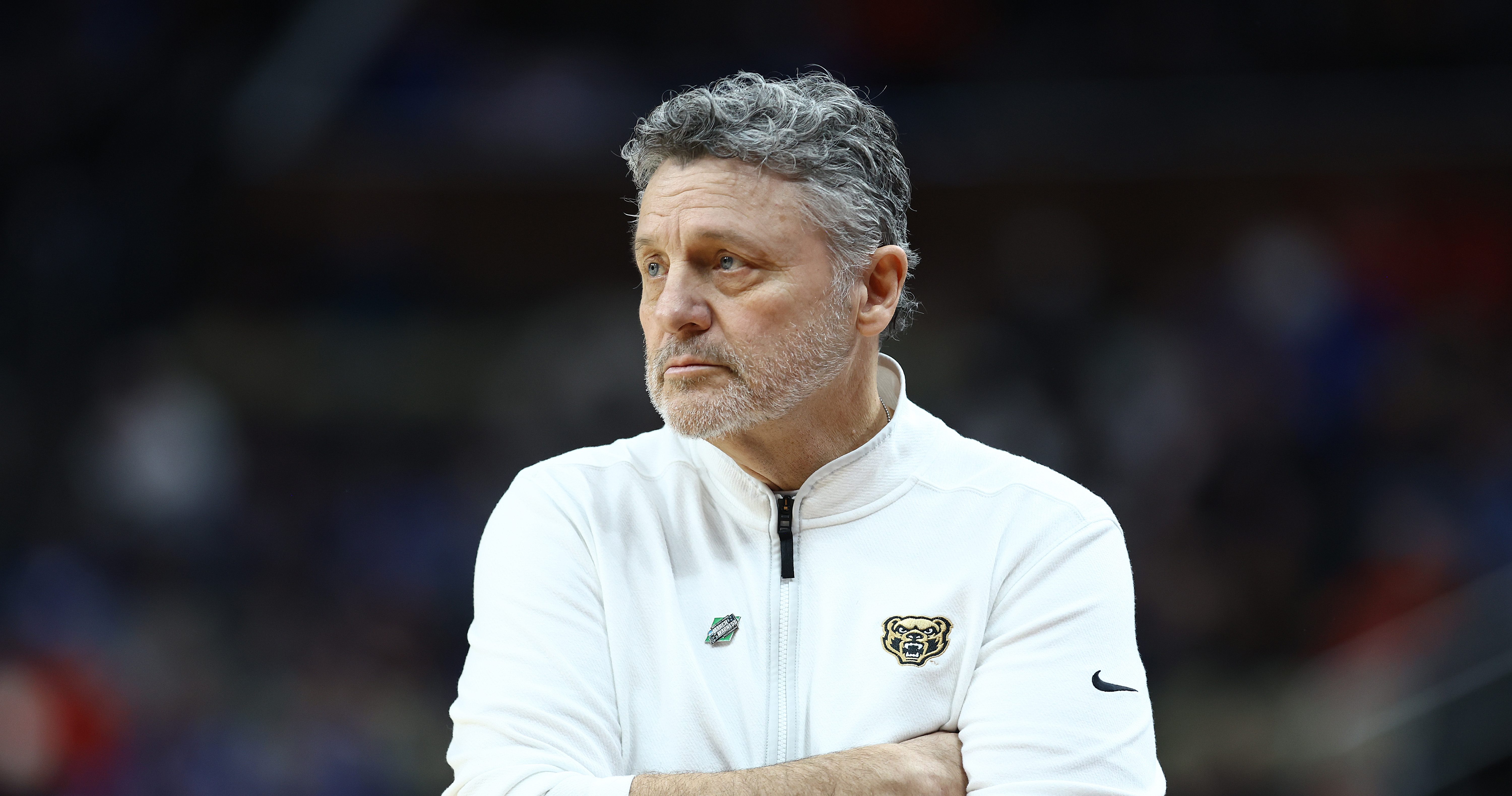Minutes after his team won the Big East Tournament championship, UConn coach Dan Hurley was worrying aloud about one of his freshmen being lured toward the transfer portal with name, image and likeness compensation offers from other schools.
Highly recruited forward Jaylin Stewart had just hit three key 3-pointers in that win over Marquette after playing limited minutes during most of the season. Hurley said he is hoping Stewart will play a bigger role with the Huskies next year, but that means the coach might have have to do some re-recruiting even with his top-seeded team in the middle of a run at a second straight national championship.
“We've just pleaded with him on a daily basis," Hurley said. "You know, that portal is calling and there’s a lot of tampering going on.”
As Hurley will attest, the job of coaching in college sports — in basketball, football and other sports — has drastically changed. Switching schools is easier than ever via the transfer portal and the lure of better NIL deals can now be a factor for athletes looking to cash in on their celebrity. That has left many coaches frustrated and some even contemplating leaving the profession.
Get top local stories in DFW delivered to you every morning. >Sign up for NBC DFW's News Headlines newsletter.
Before the NCAA Tournament began last week, the portal opened up and the floodgate was open: Some 748 Division I men and 594 Division I women entered in just the first week, even while many teams were still playing games.
“It’s a hard time of year for everybody, players, coaches, the whole nine yards,” said Clemson coach Brad Brownell, a member of the National Association of Basketball Coaches committee working on the issue. “There’s a lot of coaches, especially at midmajor schools, whose tournaments end earlier and they were very vocal about, ‘The longer we have to wait, the harder it is for us to have to figure out what to do.’"
Alabama football coach Nick Saban, who led the Crimson Tide to six national titles in 17 seasons, said during a Capitol Hill roundtable this month that the current landscape shaped by NIL funds and loosened transfer rules contributed to his decision to retire at 72.
“All the things that I believed in for all these years, 50 years of coaching, no longer exist in college athletics," he said. "It always was about developing players. It was always about helping people be more successful in life.”
In the new landscape, players who have disagreements with their coach, or feel they aren't getting enough playing time, now have the option of just leaving without having to sit out a year.
Arizona women's basketball coach Adia Barnes said she thinks that will lead to more coaches leaving the profession, though she added that she's too young to contemplate retirement. Kailyn Gilbert, the top scorer on Barnes' team, left the program last month, then entered the transfer portal the day it opened.
“I think the hard thing is you have to recruit your own team, and you have to maintain your players and go in the portal, I think that’s the challenge," Barnes said. “But I think if you look at the positive side, you can get good really fast. You can go in the portal and you can get three or four players, and you can turn a program around really, really quickly. So I think if you get the right people for your culture and your program, you can be very successful. And if you don’t, it’s hard.”
LSU women's coach Kim Mulkey reloaded after last year's title run, adding transfers Aneesah Morrow from DePaul and Hailey Van Lith from Louisville. She has no sympathy for coaches such as Saban who yearn for the good old days.
“Through the years of my coaching, you have to adjust and adapt to the 3-point line, to the smaller basketball, to being on television more — I just am of the belief that if you’re going to coach, you better adjust,” she said. "If you don’t feel like you can, then you hope you can retire just like (Saban) did and walk out in a blaze of glory.”
Taylen Collins was a three-year starter at Oklahoma State before transferring to Auburn. As a player, she said, the portal means greater control over your own future. You aren't stuck with a life-changing decision made in high school.
“I love that it allows players that freedom to where they’re not always feeling like they’re going to be in a box for the next four years,” she said.
DePaul women's coach Doug Bruno, who last year lost his best player (Morrow) to LSU, said the new rules actually have inspired him to continue coaching after 50 years on the job.
“Some people that have done this this long don’t want any part of NIL and don’t want any part of the transfer portal non-sit-out rules,” he said. “I want to fight to beat it.”
But UConn Hall of Fame women’s coach Geno Auriemma is among those who worry the changes will lead to a continued exodus of coaches, especially young ones, because he said new rules have made the job unattractive at every collegiate level.
“First of all, it’s killed the high school recruiting because why would you recruit a high school kid when you can recruit a college kid?” he said. "Second of all, it’s killed every midmajor in America who have now become junior colleges, so to speak, because as soon as they develop a good player, that player is leaving. Then at the high majors, it’s costing you money to get the kid there and it’s costing you money to keep the kid there, and it’s costing you more money to make sure they don’t leave.”
___
AP Sports Writers Brett Martel in Baton Rouge, Louisiana, Stephen Whyno in Washington and Teresa M. Walker in Memphis, Tennessee, contributed to this report.



